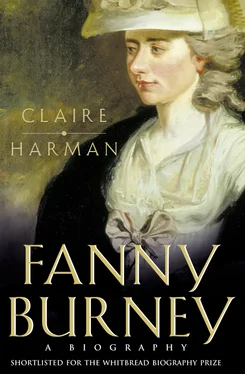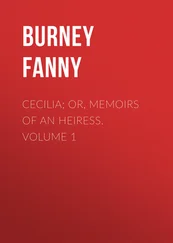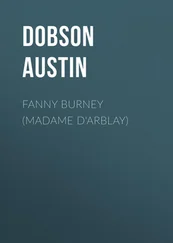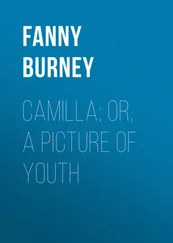to see the pleasure which appeared in some Countenances, & the disappointment pictured in others made the most singular contrast imaginable, & to see the Old turned Young, & the Young Old, – in short every Face appeared diferent [sic] from what we expected. 6
The confusion of expectations and the burlesque aspects of the masquerade appealed strongly to Fanny’s imagination, and her use of masquerade in her second novel, Cecilia , shows how well she appreciated its symbolic potential. In the novel, the heroine is tormented by her frustrated admirer Monckton, who is indulging his fantasies by dressing as a demon with a red ‘wand’. She is forcibly detained by this supposed guardian, who never speaks, but uses his devilish character to intimidate the whole company. Cecilia describes this anarchic evening as one ‘from which she had received much pleasure’, and which ‘excited at once her curiosity and amazement’. 7 The abdication of identity in the masquerade is seen as both exciting and dangerous.
Fanny Burney had a much less sheltered upbringing than most middle-class girls of her time, and the constant stream of musicians, writers, singers, actors and travellers that passed through the Burney household provided endless matter for amazement and speculation. It was a peculiarly worldly atmosphere for an unworldly, innocent-minded girl to observe, and she found it attractive without always being able to identify quite why. As a novelist, she developed a taste for drama and high colouring which some critics have seen as almost an obsession with the violence potential in genteel life. 8 The heroines of Burney novels are beyond reproach morally, but are constantly exposed to bizarre and outlandish events that the author is not afraid to depict as stimulating. This indicates a relish for experience which the novel form allowed Fanny Burney to emphasise and exaggerate – the freedom that the mask at Mr Lalauze’s had given her not to hide her true colours, but to reveal them.
The habit of writing, whether it was her journal or creative ‘vagaries’, and the secretive solitude it required became such pleasures to Fanny that she resented other calls on her time. The social duties of adult life that obliged women to be forever receiving and returning visits and performing ‘constrained Civilities to Persons quite indifferent to us’ 9 left her cold. ‘Mama’ was very keen on these civilities (she no doubt saw them as essential in a household full of girls in the marriage market), and one of Fanny’s outbursts in her journal hints at the tensions that were arising from the new regime:
those who shall pretend to defy this irksome confinement of our happiness, must stand accused of incivility, – breach of manners – love of originality, – & God knows what not – nevertheless, they who will nobly dare to be above submitting to Chains their reason disapproves, they shall I always honour – if that will be of any service to them! 10
The cryptic references to ‘Chains’ and ‘defiance’ indicate the dramatic terms in which the teenaged Burney girls saw their struggle against ‘Mama’ and her set ideas about a woman’s destiny. At this point in her life, Fanny had no thought of her writings being published or even read by anyone other than ‘Nobody’, or Susan at the very most, but writing already defined her sense of autonomy, in terms both of what she wrote and the liberty she required to write it.
Fanny’s invention of the deliberately trivialising term ‘scribbleration’ for her writing was a sort of disclaimer, disassociating herself from authorship, which was the preserve of the venerated ‘class of authors’. Her father was about to join that class himself, in the same year (1769) that he finally took his doctorate in music at Oxford. When a friend called Steele suggested that Burney wasn’t making enough of his new academic title, and urged him to change his door-plate, the new doctor replied, self-consciously slipping into dialect, ‘I wants dayecity, I’m ashayum’d!’ 11 Want of ‘dayecity’ – or the affectation of such – ran even stronger in his daughter. When her father was in Oxford for the performance of his examination piece, Fanny sent him some comic verses that she had composed to mark the occasion. He was so amused that he read them aloud to casual acquaintances in Oxford, and teased her when he got home by reciting them in front of the family. Fanny tried to snatch the verses from him, but he carried on, and all she felt she could do was run out of the room. Her delight that he was not angry at her ‘pert verses’ 12 made her creep back again, though, to hear his praises surreptitiously. It was a premonition of all her later fears and ambivalence about the reception of her work and her father’s approval of it in particular.
Charles Burney’s doctorate (which was, of course, soon brazened – Steele’s pun – on the Poland Street door) conferred an authority which was helpful to his self-esteem and to the new turn he wanted his career to take. In October his first book, a short, businesslike Essay towards a history of the principal comets that have appeared since 1742 , was published. The subject was timely and topical; astronomy was fashionable, and 1769 was the year in which Halley had predicted the return of his comet ‘in confirmation of the theory of the illustrious Sir Isaac Newton’. But though Burney’s little book shows his commercial instincts at work (it sold well enough to be reprinted the following year), it had a personal significance as well, being a form of homage to the dead Esther. Years before, she had made a translation of the French scientist Maupertuis’s ‘Letter upon Comets’, purely from ‘love of improvement’, according to Fanny 13 (rather like Fanny’s own youthful translation of Fontanelle). Esther’s interest in astronomy had fuelled her husband’s – she might well have been looking forward to the reappearance of the great comet herself. Charles Burney revised the translation and wrote his own essay as a companion piece, a gesture which was not lost on their daughter. In the Memoirs she describes the work as a joint project by her parents, and prefaces her remarks with the apparently irrelevant information that the second Mrs Burney was staying in Norfolk at the time of its production – as if the book constituted some kind of secret assignation between Burney and his dead wife. At the distance of more than fifty years, Fanny wrote portentously about her father’s first step into print, and was in no doubt who should take the credit: her mother’s pure ‘love of improvement’ had ‘unlocked […] the gates through which Doctor Burney first passed to that literary career which, ere long, greeted his more courageous entrance into a publicity that conducted him to celebrity’. 14
The Essay was only a short work but it kept Dr Burney up late at night, and its completion was followed by an acute bout of rheumatic fever. The pattern of overwork, hurry and collapse during the composition of his books may have impressed the Doctor’s daughter with the idea that writing was something urgent, difficult and heroic. Burney had by this time formulated the plan for his General History of Music , the first scholarly attempt in English to cover the development of the subject from ancient times to his own day. To choose a project so massive and challenging suggests that Burney had tired of dabbling and wanted a surefire ticket to fame (and fortune, of course), to be the author of a work which would virtually put itself beyond criticism on account of its novelty, authority and sheer size, and which, like the Dictionary of his admired Johnson, would contribute substantially to knowledge, in an age when all the best minds of Europe seemed engaged on writing works of reference.
Читать дальше












